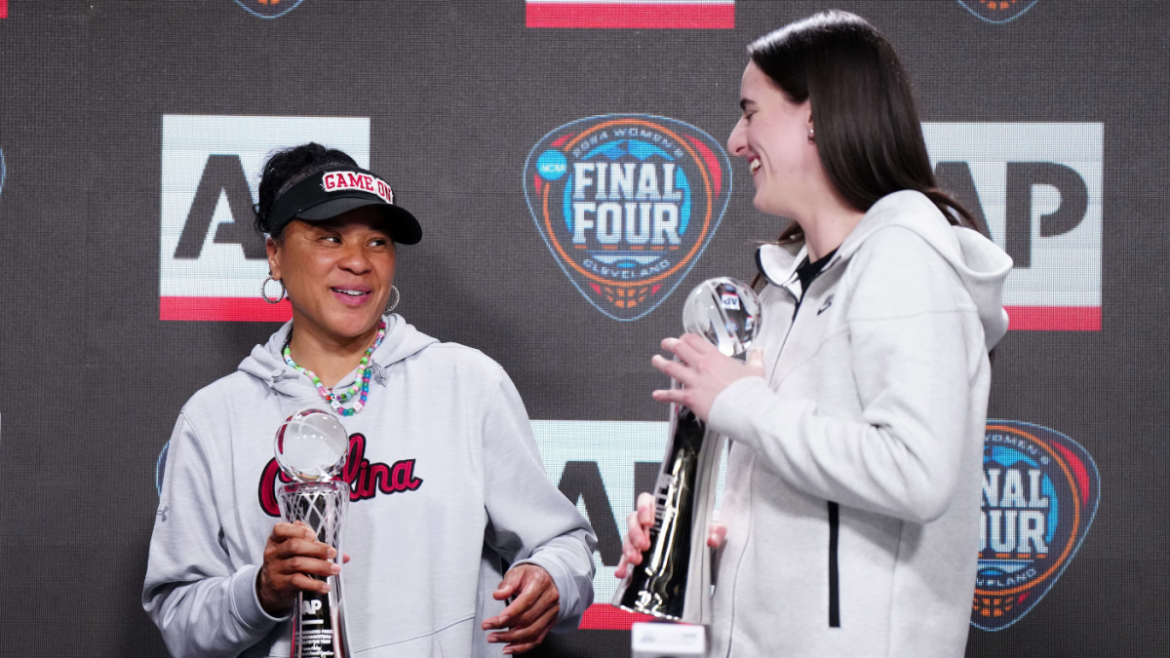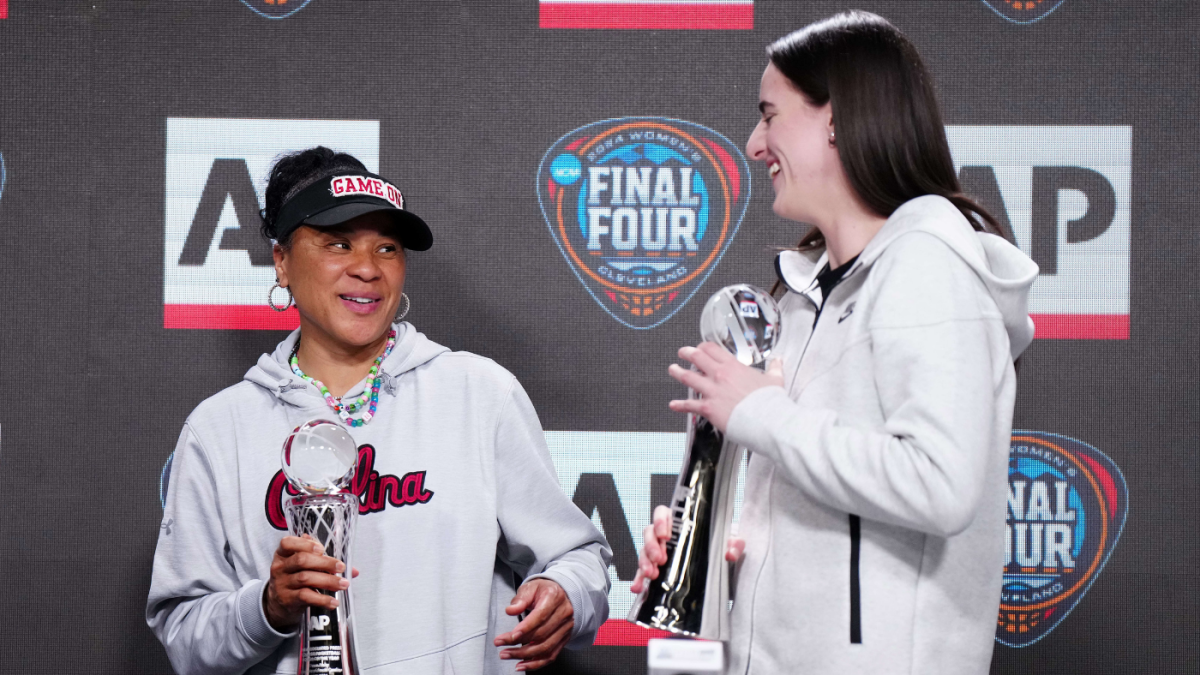The Caitlin Clark–Angel Reese Rivalry: Dawn Staley’s Insight and Its Impact on Women’s Basketball
In the evolving landscape of women’s basketball, few stories have captivated fans like the rivalry between Caitlin Clark and Angel Reese. This competitive dynamic has transcended ordinary sports discourse, drawing widespread attention and sparking passionate debate. Central to this conversation is Dawn Staley, the respected South Carolina women’s basketball coach, whose candid and influential perspective has added a nuanced dimension to the escalating dialogue.
Setting the Scene: A Rivalry That Ignited a New Era
The Caitlin Clark–Angel Reese rivalry gained prominence during their transition into the WNBA, where each has emerged as a formidable star. Their head-to-head matchups, notably the 2025 season-opening showdown between Clark’s Indiana Fever and Reese’s Chicago Sky, have not only produced memorable basketball moments but also unprecedented viewership and engagement. The spark that ignited much of the recent controversy was a physical play resulting in a flagrant foul call—a moment that fueled media frenzy and social media debate, highlighting tensions, sportsmanship, and rivalry boundaries.
Dawn Staley’s Take: Celebrating the Rivalry and the Sport
Dawn Staley’s reflections have been consistently supportive of the rivalry’s role in elevating women’s basketball. On appearances including “The Breakfast Club” podcast and “The View,” Staley framed the drama not as detrimental but as “great for our game.” Her perspective urges fans and critics alike to recognize the intensity, passion, and competitive fire emblematic of professional basketball. Staley emphasized that women’s basketball should be “treated like a sport,” insisting that emotional and physical elements inherent to any high-level sport rightfully belong in the narrative.
She acknowledged the flare-ups between Clark and Reese—including the much-discussed flagrant foul—asserting they inject vitality and excitement, which draws attention and respect to the women’s game. Staley’s candid remarks, sometimes described as “saying the quiet part out loud,” challenge the tendency to sanitize female athletic competition or to shy away from legitimate expressions of rivalry and toughness.
Rookie of the Year Debate: Staley’s Balanced View
Beyond the conflicts, Staley weighed in on a significant WNBA accolade: Rookie of the Year (ROY) contention between Clark and Reese. While she suggested Reese might currently have a slight edge, she acknowledged Clark’s well-rounded statistical contributions and fierce spirit. Staley heralded both players for their remarkable impact, describing them as pivotal stars who will continue to define the league’s future. Her comments support the narrative that this rivalry is not just superficial drama but a substantive contest between two elite athletes pushing each other to new heights.
Social Media and Broader Conversations: Rivalry, Race, and Recognition
The rivalry has also emerged as a reflection point for larger societal discussions. Escalating social media exchanges, including TikTok posts that mock racial and cultural identities, reveal undercurrents of tension far beyond the court. Staley’s stance implicitly encourages focusing on the athletic excellence and competitive passion at the rivalry’s core rather than on divisive or superficial narratives. The engagement driven by these two stars has undeniably widened the profile of women’s basketball, but it also spotlights challenges the league must navigate around player portrayal, media framing, and fan reactions.
Impact on Women’s Basketball Culture and Growth
Dawn Staley’s repeated insistence that this rivalry is “great for our game” captures a vital truth: high-profile conflicts and storylines historically fuel interest and growth in professional sports. The Clark-Reese saga has attracted massive viewership that many thought unlikely for WNBA games. Ratings spikes, record-setting broadcasts, and widespread conversations signal a cultural moment where women’s sports are gaining mainstream traction through authentic, relatable competition.
Staley’s leadership and voice help legitimize this era. By commemorating the stars’ fierce competitiveness and urging the sport to be taken seriously on all levels, she advocates for a women’s basketball culture that embraces both skill and emotion, rivalry and respect. Her perspective also challenges the longstanding tendency to diminish women’s sports by shielding them from the raw realities that define men’s sports narratives.
Moving Forward: Embracing Rivalry as a Catalyst for Excellence
As the Caitlin Clark–Angel Reese rivalry continues to unfold, the enthusiasm and sometimes controversy surrounding it will likely persist. Dawn Staley’s comments serve as a clarion call to acknowledge these moments as integral to the sport’s evolution rather than distractions or problems to manage. By highlighting the rivalry’s positive effects on viewership, player recognition, and fan engagement, Staley underscores the potential for these athletes to elevate the entire league.
Both Clark and Reese, fueled by this competitive spirit, stand to benefit from the heightened exposure and challenge. Their ongoing duels spotlight the WNBA’s talent depth and dramatize the league’s capacity to capture mainstream attention. The discourse around them, while occasionally contentious, contributes to a richer, more compelling story of women’s basketball making impactful strides in the professional sports arena.
Conclusion: Dawn Staley’s Enduring Influence on the Narrative
Dawn Staley’s intervention in the Caitlin Clark–Angel Reese drama goes beyond commentary—it offers a blueprint for embracing complexity in women’s sports. Rather than denounce or downplay rivalry and its emotional intensity, Staley advocates for its rightful place in advancing women’s basketball stature and appeal. Her confident endorsement and candid perspectives reaffirm that fierce competition, passion, and even controversy are part of the game’s authentic fabric.
The legacy of this rivalry—and Staley’s role in shaping its public perception—will likely resonate for years to come. It represents not only the emergence of two extraordinary talents but also a transformative moment for the sport that Staley has long championed: a women’s basketball renaissance fueled by star power, competitive fire, and cultural relevance.





